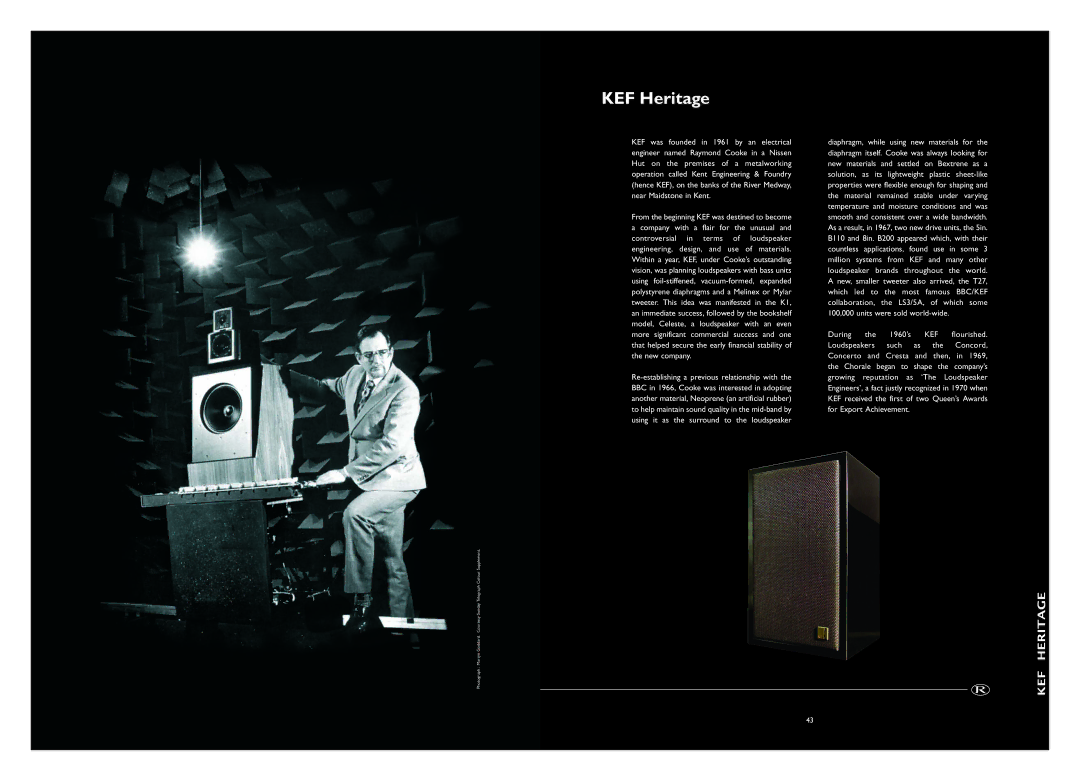KEF Heritage
KEF was founded in 1961 by an electrical engineer named Raymond Cooke in a Nissen Hut on the premises of a metalworking operation called Kent Engineering & Foundry (hence KEF), on the banks of the River Medway, near Maidstone in Kent.
From the beginning KEF was destined to become a company with a flair for the unusual and controversial in terms of loudspeaker engineering, design, and use of materials. Within a year, KEF, under Cooke’s outstanding vision, was planning loudspeakers with bass units using foil-stiffened, vacuum-formed, expanded polystyrene diaphragms and a Melinex or Mylar tweeter. This idea was manifested in the K1, an immediate success, followed by the bookshelf model, Celeste, a loudspeaker with an even more significant commercial success and one that helped secure the early financial stability of the new company.
Re-establishing a previous relationship with the BBC in 1966, Cooke was interested in adopting another material, Neoprene (an artificial rubber) to help maintain sound quality in the mid-band by using it as the surround to the loudspeaker
Photograph : Martyn Goddard. Courtesy Sunday Telegraph Colour Supplement.
diaphragm, while using new materials for the diaphragm itself. Cooke was always looking for new materials and settled on Bextrene as a solution, as its lightweight plastic sheet-like properties were flexible enough for shaping and the material remained stable under varying temperature and moisture conditions and was smooth and consistent over a wide bandwidth. As a result, in 1967, two new drive units, the 5in. B110 and 8in. B200 appeared which, with their countless applications, found use in some 3 million systems from KEF and many other loudspeaker brands throughout the world. A new, smaller tweeter also arrived, the T27, which led to the most famous BBC/KEF collaboration, the LS3/5A, of which some 100,000 units were sold world-wide.
During the 1960’s KEF flourished. Loudspeakers such as the Concord, Concerto and Cresta and then, in 1969, the Chorale began to shape the company’s growing reputation as ‘The Loudspeaker Engineers’, a fact justly recognized in 1970 when KEF received the first of two Queen’s Awards for Export Achievement.

